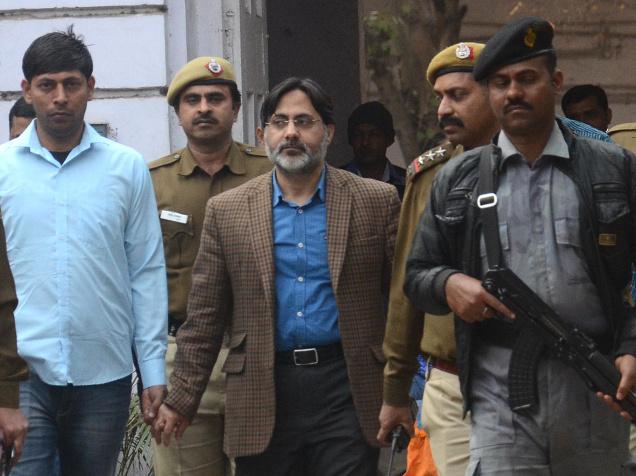Where Is S A R Geelani? Why The Silence?
By Shubhda Chaudhary
02 March, 2016
Countercurrents.org

As the uproar continues over the arrest of JNUSU President Kanhaiya, the media and politicians have been palpably silent regarding the arrest of Professor S A R Geelani on sedition charges. His arrest comes after he organized an event at Press Club of India regarding the hanging of Afzal Guru on February 10.
“Not a single protest has taken place in Delhi for my father. No one wants to talk about him. Why?” asks Nusrat, daughter of Professor Geelani who is currently in Tihar jail. Mr. Geelani’s family resides in a nondescript south-east Delhi society. His two children, Atif and Nusrat, are pursuing law, a conscious choice they made after his arrest in 2001. The s most humiliating factor is the silence which the media and politicians have exercised regarding the arrest of Geelani, as if it is immaterial and does not need any kind of debate.
His wife was told, “Your husband is in jail We will kill you. We will kill the children. You better tell him to come clean.” (Except from an interview printed in In Custody: Law, Impunity and Prisoner Abuse in South Asia).
Geelani, a Kashmiri from Baramulla, was sentenced to death by the trial court on December 18, 2002. In October 2003, the high court acquitted him of all charges. In August 2005, the Supreme Court upheld the acquittal.
When Afzal was hanged in Tihar, Geelani called the UPA government’s decision a “cruel and politically motivated gimmick” and said the “police and investigative agencies fabricated evidence against Afzal and the whole system is biased and he had faced the heat of this bias”. He frequently raised questions about the Parliament attack case. “I have had an opportunity to closely see the workings of the courts and the police. What is most disturbing is that when the police violate procedures and even guidelines laid down by the Supreme Court, the trial is held legal,’’ he once said. “For instance, the police forged my arrest memo and told lies on oath about my arrest. I was denied access to a lawyer, and almost all safeguards with regard to arrests and detention were flagrantly violated. Even my two small children were arrested and detained for several days.”
What is really obnoxious in the current regime is that anyone exercising the Right to Dissent is being labeled as ‘anti-national’ and imposed with the draconian charges of sedition and criminal conspiracy. The idea of an independent Kashmir is so scary for the current government, in spite of its alliance with PDP in Kashmir, which comes as a mockery.
Patriotism is a very subjective phenomenon which cannot be forcibly heaped upon the citizens of any country. So, does one have to be punished if one differs or debates, with the imposition of the aggressive nationalism that is fiercely being practiced currently in the country? What would happen to voices of that of Professor Geelani who want to narrate a different picture, a different truth? Does that make them immediate victims without any voice, vulnerable to hostility and torture? For how long with the state continue to reprimand and rebuke voices as that of Professor Geelani to manifest its own ultra-nationalist agenda?
Shubhda Chaudhary is a Phd Scholar at JNU. She can be contacted at [email protected]

